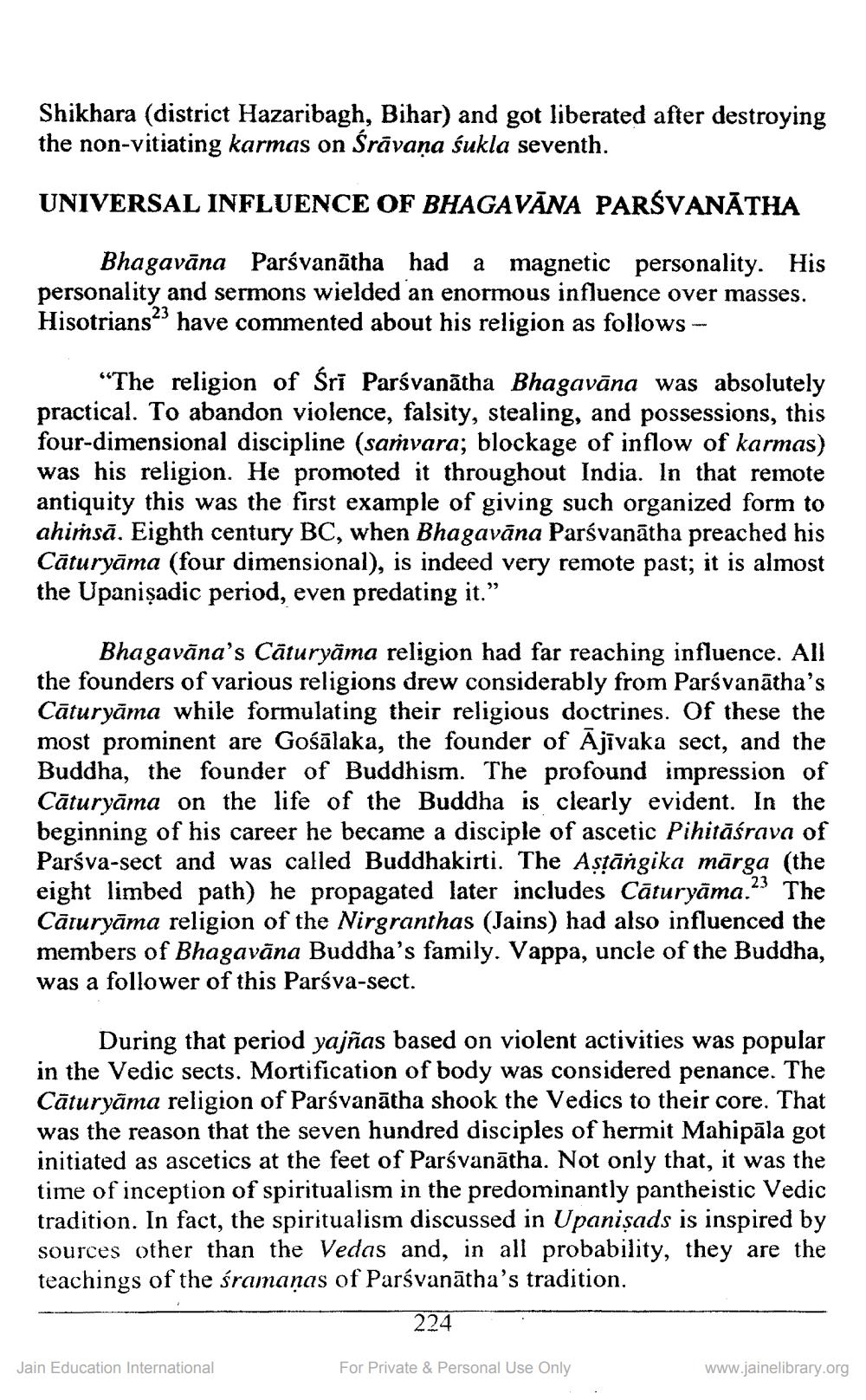________________
Shikhara (district Hazaribagh, Bihar) and got liberated after destroying the non-vitiating karmas on Śrāvaņa śukla seventh.
UNIVERSAL INFLUENCE OF BHAGAVĀNA PARÁVANATHA
Bhagavāna Parśvanātha had a magnetic personality. His personality and sermons wielded an enormous influence over masses. Hisotrians have commented about his religion as follows -
“The religion of Sri Parśvanātha Bhagavāna was absolutely practical. To abandon violence, falsity, stealing, and possessions, this four-dimensional discipline (samvara; blockage of inflow of karmas) was his religion. He promoted it throughout India. In that remote antiquity this was the first example of giving such organized form to ahiṁsā. Eighth century BC, when Bhagavāna Parávanātha preached his Cāturyāma (four dimensional), is indeed very remote past; it is almost the Upanişadic period, even predating it."
Bhagavāna's Cāturyāma religion had far reaching influence. All the founders of various religions drew considerably from Parsvanātha's Cāturyāma while formulating their religious doctrines. Of these the most prominent are Gośālaka, the founder of Ajīvaka sect, and the Buddha, the founder of Buddhism. The profound impression of Cāturyāma on the life of the Buddha is clearly evident. In the beginning of his career he became a disciple of ascetic Pihitāśrava of Parśva-sect and was called Buddhakirti. The Astāngika mārga (the eight limbed path) he propagated later includes Cāturyāma." The Cāturyāma religion of the Nirgranthas (Jains) had also influenced the members of Bhagavāna Buddha's family. Vappa, uncle of the Buddha, was a follower of this Parśva-sect.
During that period yajñas based on violent activities was popular in the Vedic sects. Mortification of body was considered penance. The Cāturyāma religion of Parśvanātha shook the Vedics to their core. That was the reason that the seven hundred disciples of hermit Mahipāla got initiated as ascetics at the feet of Parsvanātha. Not only that, it was the time of inception of spiritualism in the predominantly pantheistic Vedic tradition. In fact, the spiritualism discussed in Upanişads is inspired by sources other than the Vedas and, in all probability, they are the teachings of the śramaņas of Parśvanātha's tradition.
224
Jain Education International
For Private & Personal Use Only
www.jainelibrary.org




